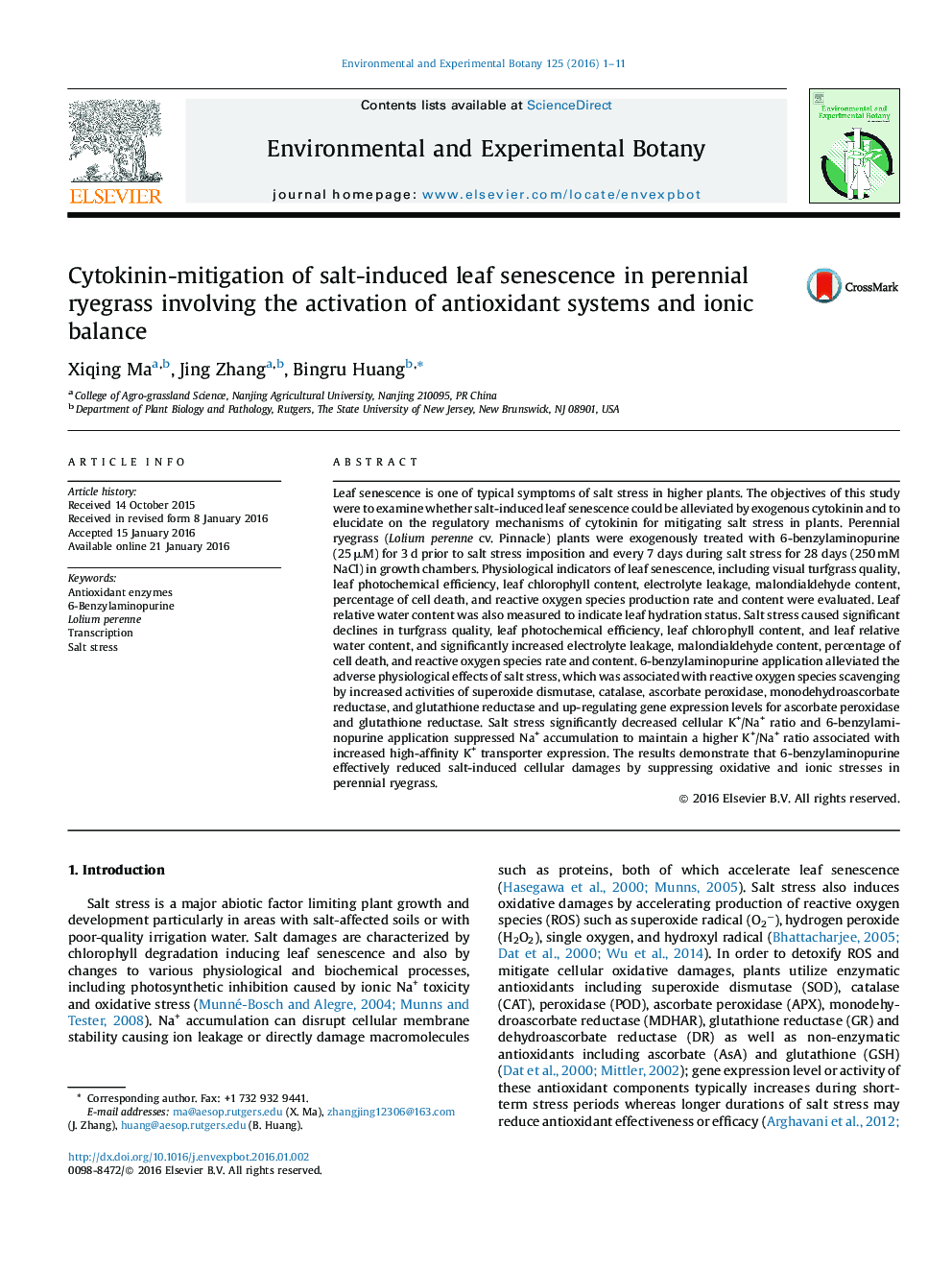| کد مقاله | کد نشریه | سال انتشار | مقاله انگلیسی | نسخه تمام متن |
|---|---|---|---|---|
| 4554088 | 1628052 | 2016 | 11 صفحه PDF | دانلود رایگان |
• Exogenous cytokinin applications alleviated salt-induced leaf senescence in perennial ryegrass.
• The positive effects of exogenous cytokinin were related to antioxidant enzyme enhancement and suppressed Na+ accumulation.
• Exogenous cytokinin increased K+/Na+ ratio associated with the up-regulation of high-affinity K+ transporter (HKT).
Leaf senescence is one of typical symptoms of salt stress in higher plants. The objectives of this study were to examine whether salt-induced leaf senescence could be alleviated by exogenous cytokinin and to elucidate on the regulatory mechanisms of cytokinin for mitigating salt stress in plants. Perennial ryegrass (Lolium perenne cv. Pinnacle) plants were exogenously treated with 6-benzylaminopurine (25 μM) for 3 d prior to salt stress imposition and every 7 days during salt stress for 28 days (250 mM NaCl) in growth chambers. Physiological indicators of leaf senescence, including visual turfgrass quality, leaf photochemical efficiency, leaf chlorophyll content, electrolyte leakage, malondialdehyde content, percentage of cell death, and reactive oxygen species production rate and content were evaluated. Leaf relative water content was also measured to indicate leaf hydration status. Salt stress caused significant declines in turfgrass quality, leaf photochemical efficiency, leaf chlorophyll content, and leaf relative water content, and significantly increased electrolyte leakage, malondialdehyde content, percentage of cell death, and reactive oxygen species rate and content. 6-benzylaminopurine application alleviated the adverse physiological effects of salt stress, which was associated with reactive oxygen species scavenging by increased activities of superoxide dismutase, catalase, ascorbate peroxidase, monodehydroascorbate reductase, and glutathione reductase and up-regulating gene expression levels for ascorbate peroxidase and glutathione reductase. Salt stress significantly decreased cellular K+/Na+ ratio and 6-benzylaminopurine application suppressed Na+ accumulation to maintain a higher K+/Na+ ratio associated with increased high-affinity K+ transporter expression. The results demonstrate that 6-benzylaminopurine effectively reduced salt-induced cellular damages by suppressing oxidative and ionic stresses in perennial ryegrass.
Journal: Environmental and Experimental Botany - Volume 125, May 2016, Pages 1–11
